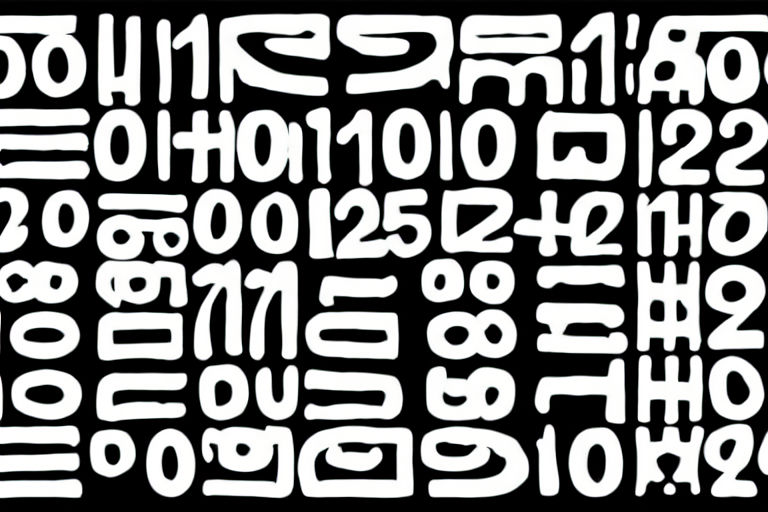A Beginner’s Guide to Number Theory and Its Practical Applications
When we think of numbers, we often think of arithmetic and solving equations. However, number theory is a branch of mathematics that is concerned with the properties and relationships of numbers at a more fundamental level. In this beginner’s guide, we will introduce you to the basics of number theory and its practical applications.
What is Number Theory?
Number theory is the study of the properties of numbers in general. This branch of mathematics is primarily concerned with the integers or whole numbers, as well as their properties and relationships. Number theory deals with questions such as how to tell whether a number is prime or composite, and how to factor a number into its prime factors.
Important Concepts in Number Theory
Prime and Composite Numbers
Prime numbers are numbers that are only divisible by 1 and itself. The first few prime numbers are 2, 3, 5, 7, 11, 13, 17, and so on. A composite number, as opposed to a prime number, is a number that has more than two factors. For example, 4 is a composite number because it can be factored into 2 x 2.
Divisibility
Divisibility is a concept that is closely related to prime and composite numbers. A number is said to be divisible by another number if it can be divided by that number without a remainder. For example, 9 is divisible by 3 because 9 ÷ 3 = 3 with no remainder.
Modular Arithmetic
Modular arithmetic is a system of arithmetic where numbers “wrap around” after reaching a certain value, called the modulus. For example, in modulo 12 arithmetic, after the number 11, the next number is 0. This system of arithmetic has practical applications in computer science and cryptography.
Practical Applications of Number Theory
Cryptography
Cryptography, the practice of secure communication in the presence of third parties, relies heavily on number theory. Cryptographic protocols such as RSA encryption and elliptic curve cryptography are based on mathematical concepts from number theory.
Computer Science
Number theory also has many practical applications in computer science. Algorithms for prime factorization and determining whether a number is prime or composite are important in computer security and encryption.
Finance
In finance, number theory is used to create and analyze cryptographic algorithms for financial transactions. It is also used in financial modeling, where principles from number theory are used to make predictions about stock prices and other investment opportunities.
Conclusion
Number theory is an interesting and fundamental branch of mathematics with practical applications in many fields, including cryptography, computer science, and finance. By understanding the basics of number theory, you will have a better understanding of the fundamental properties of numbers and their practical applications.



